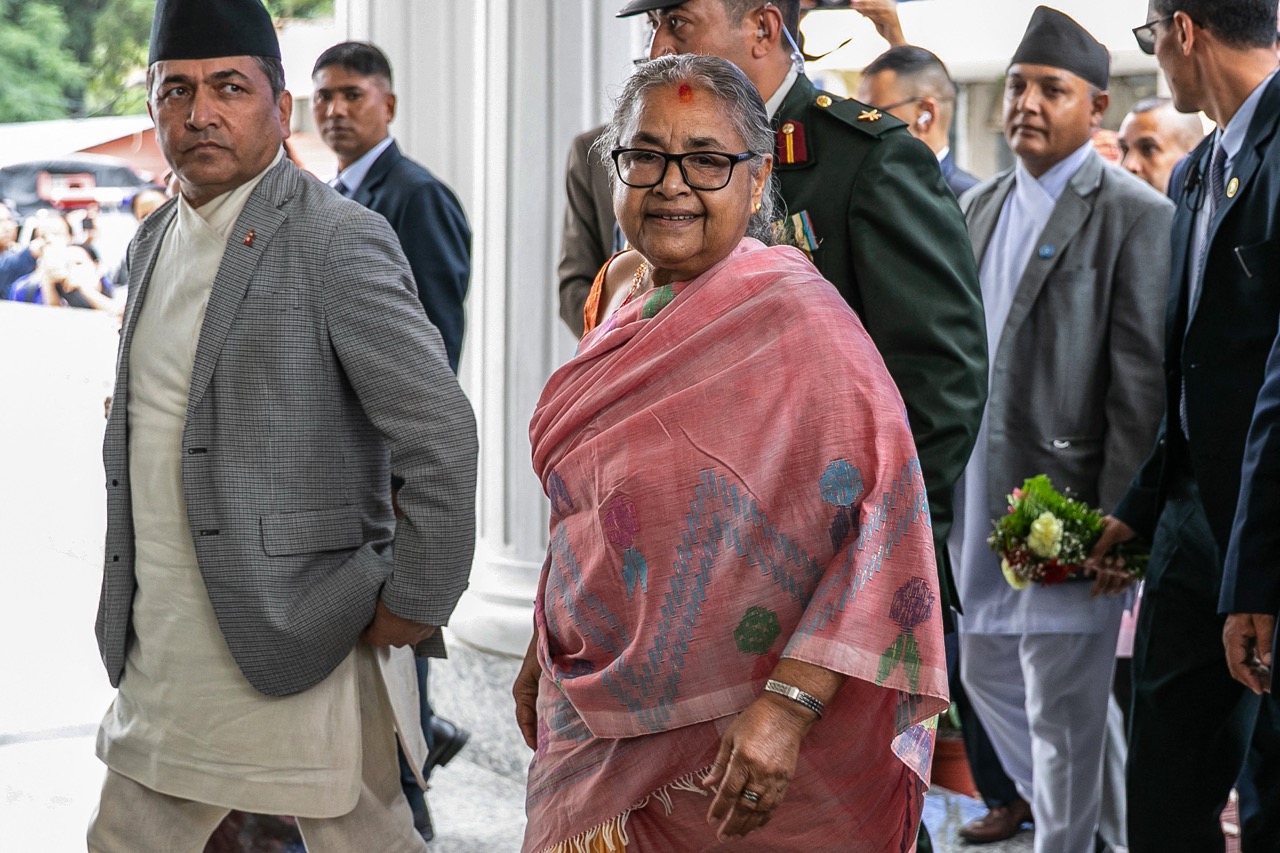"My team and I are not here for the taste of power. We don't want to hold onto this position for more than six months. We are committed to handing over leadership to the new parliament and cabinet. To achieve this, we need the people's support," Nepal's acting prime minister, Sushila Karki, stated on 14/9 in her first public address since taking office.
The former chief justice of Nepal's Supreme Court emphasized that the interim government's priorities are to "end corruption, ensure good governance, and promote economic equality," echoing the demands of the Gen Z protests.
 |
Nepal's Acting Prime Minister Sushila Karki arrives at the Prime Minister's Office on 14/9 to begin work. Photo: AFP |
Nepal's Acting Prime Minister Sushila Karki arrives at the Prime Minister's Office on 14/9 to begin work. Photo: AFP
Protests erupted on 8/9 following a social media ban, quickly evolving into an anti-government movement. Thousands took to the streets of Kathmandu, setting fire to government buildings and other prominent structures in the capital.
According to Cabinet Secretary Eaknarayan Aryal, at least 72 people were killed and 191 injured during the unrest, marking the most severe instability since Nepal ended its civil war and monarchy in 2008.
Karki observed a moment of silence for the victims before commencing work at the Singha Durbar complex, which had been targeted by protesters a few days prior.
"Honestly, I didn't want to assume this position under the current circumstances. But I was chosen by the people," Karki shared.
The appointment of the 73-year-old Karki was the result of urgent negotiations between President Ram Chandra Paudel and Army Chief Ashok Raj Sigdel, with participation from representatives of Nepal's Gen Z protest movement.
President Paudel also called for national unity to ensure the smooth conduct of the general election scheduled for 5/3/2026. On 13/9, he acknowledged that the South Asian nation of 30 million people is still in an "extremely difficult, complex, and critical" situation.
Kathmandu is gradually returning to normalcy, but security remains tense as over 12,500 prisoners who escaped during the riots are still at large. The government has urged citizens to cooperate with security forces to maintain order and prepare for the transition period.
Thanh Danh (AFP, Hindustan Times)












